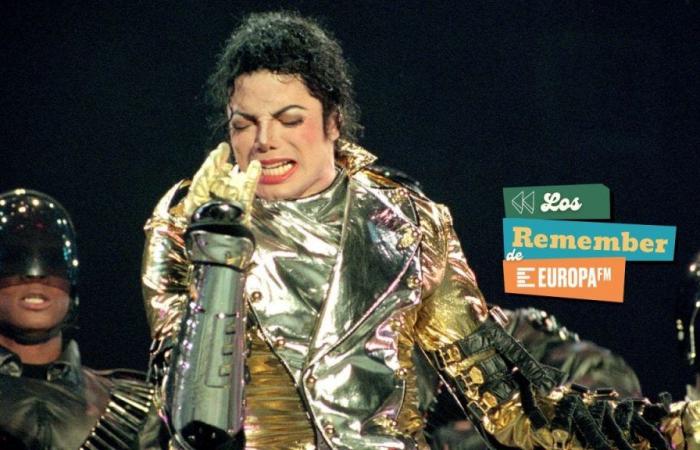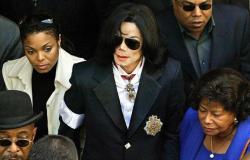“The king of pop dies”. “Michel Jackson dies”. “Michel Jackson, the king of pop, dies at 50”. “An idolized and tormented star: Michael Jackson dies at 50”. “Jacko dies.” “Michael Jackson is dead.” All the major newspapers, all the television news programs and all the radio bulletins opened with the same news that morning of June 25, 2009.
The world of music and its millions of followers went into shock, as Michael Jackson seemed to wake up from the worst of his moments, marked by the accusations of child abuse They sat him on the bench, but he wanted to get back on stage and on July 13 he began his new tour This Is It at the O2 Arena in London.
The first information that reached the newsrooms indicated that the singer had suffered a cardiorespiratory arrest. At 12:26 in the afternoon—9:26 p.m. in our country—the Los Angeles medical services received an urgent call from the singer’s home. The medical team that went to Michael Jackson’s home in Bel Air tried to revive him at the scene for more than an hour and was taken to the hospital by helicopter in a deep coma. At 2:26 p.m. They certified his death at the age of 50.
“We are overwhelmed by his death,” his brother Jermaine Jackson acknowledged just a few hours later in a statement to the press. “His personal doctor, who was with him at the time, tried to resuscitate Jackson, as did the paramedics who transported him to Ronald Reagan UCLA Medical Center,” he explained to the media and confirmed that The cause of death was cardiac arrest. but that would only be known “once the autopsy has been performed.”
The cause, propofol
The first information from the autopsy did not emerge until August, since the doctors required some additional tests to be carried out and The family requested an additional investigation, since the first data were not conclusive. Finally, reports confirmed that death was caused by the administration of a powerful sedativePropofol, which is used to induce general anesthesia in surgeries and that it must be administered with adequate monitoring and resuscitation equipment, combined with benzodiazepines.
The autopsy also revealed, according to reported the TMZ portal exclusively, that “Jackson had osteoarthritis that was visible in the lower part of his spine and in his fingers.” According to the tests, His heart was healthy, although his lungs were inflamed.and no illegal drugs or alcohol were detected, nor pills in his stomach. “The manner of death, which was already reported as homicide, was based in part on the administration of propofol in a non-hospital environment,” the digital media reported.
From that moment on, all eyes turned to the doctor. Conrad Murray, the personal physician of the singer, who was questioned several times by the police. Murray admitted during the investigation to having been treating Jackson for insomnia during the six weeks before his death, because he was in a particularly delicate personal stage, nervous about his problems with the law and the important tour that was going to begin in a few days with which he was going to give more than fifty concerts.
“The cardiologist began by injecting the artist 50 milligrams of Propofol, although the dose was lowered for fear that Jackson could become addicted to that drug. The doctor then decided to reduce the amount of painkiller by half and combine its effect with that of two sedatives: lorazepam and midazolam,” the American media revealed.
Shortly afterward, the regimen administered that night—in which he seemed to have special problems falling asleep—that caused the fatal outcome was confirmed: at 10:40 p.m., 25 mg of propofol diluted with lidocaine intravenously; at 01:30 a.m., 10 mg of diazepam; at 2:00 a.m., 2 mg of lorazepam; at 03:00 a.m., 2 mg of midazolam; at 05:00, 2 mg lorazepam; at 07:30, 2 mg of midazolam.
After months of investigation and speculation, Michael Jackson’s burial took place 70 days after his death, on September 3, 2009.
The doctor, guilty of involuntary manslaughter
After the details surrounding the artist’s death became known, Conrad Murray, the doctor who looked after the king of pop’s health before starting his big tour, was accused of involuntary manslaughter.
On November 7, 2011, he was found guilty and in November sentenced to four years in prison.
The prosecution considered that the doctor had committed “severe negligence”: “He administered a lethal dose of medication to the singer, specifically the anesthetic propofol, and then abandoned his patient in his room to answer telephone calls – the sentence counted eleven.”
The jurors announced their verdict unanimously. “Michael Jackson died due to the actions and failures of Dr. Murray to carry out his medical obligations, and that responsibility does not correspond to any other doctor and not exclusively because it was Michael Jackson,” ruled the judge in charge of the case.
Murray was placed on probation and his medical license was suspended in California and Nevada.






